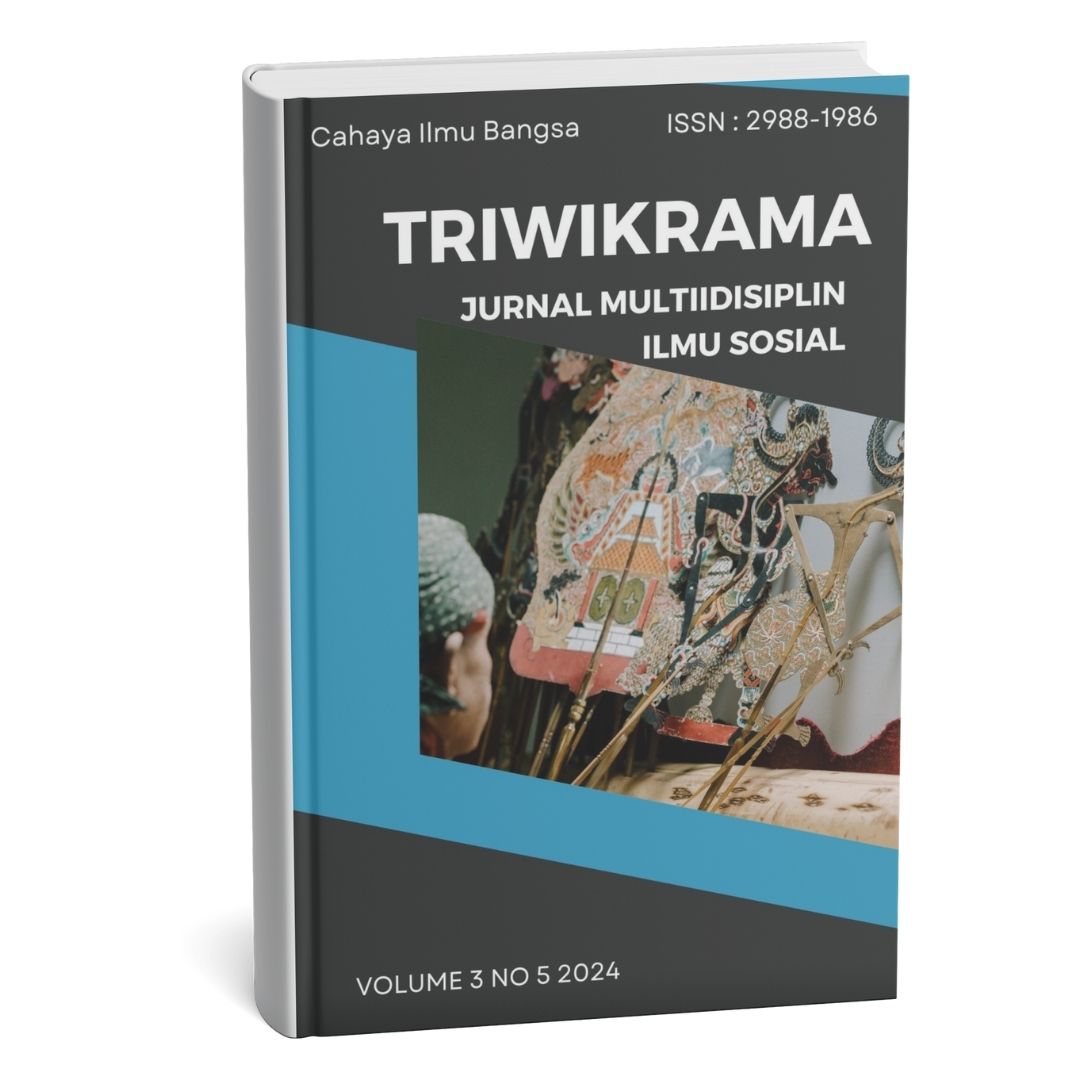Transformasi CSR menjadi Strategi Keberlanjutan Korporasi di Abad ke-21
Main Article Content
Abstract
Praktik Corporate Social Responsibility (CSR) telah mengalami perkembangan signifikan dari sekadar aktivitas filantropi menuju integrasi strategis dalam model bisnis perusahaan. Perubahan ini didorong oleh meningkatnya tuntutan pemangku kepentingan, regulasi yang lebih ketat, dan urgensi isu keberlanjutan global. Penelitian ini bertujuan menganalisis transformasi CSR menjadi strategi keberlanjutan korporasi di abad ke-21, dengan menekankan pergeseran paradigma dari tanggung jawab sosial bersifat reaktif menuju pendekatan proaktif yang terintegrasi dengan tujuan bisnis jangka panjang. Penelitian ini menggunakan pendekatan kualitatif deskriptif dengan studi pustaka yang memadukan analisis literatur akademik, dokumen kebijakan, dan laporan keberlanjutan perusahaan berskala nasional maupun multinasional. Data dianalisis menggunakan kerangka triple bottom line (TBL) dan shared value untuk mengidentifikasi pola integrasi CSR dengan strategi korporasi. Hasil penelitian menunjukkan bahwa transformasi CSR dipengaruhi oleh tiga faktor utama: (1) orientasi bisnis berkelanjutan yang menekankan keseimbangan antara keuntungan, kepedulian sosial, dan kelestarian lingkungan; (2) inovasi model bisnis yang menginternalisasi prinsip keberlanjutan; serta (3) keterlibatan aktif pemangku kepentingan dalam proses perencanaan dan evaluasi program. Diskusi menegaskan bahwa CSR yang diintegrasikan ke dalam strategi keberlanjutan korporasi bukan hanya meningkatkan citra perusahaan, tetapi juga menciptakan keunggulan kompetitif jangka panjang. Implikasi penelitian ini menggarisbawahi perlunya kerangka regulasi dan panduan implementasi yang lebih adaptif terhadap dinamika global agar perusahaan di Indonesia dapat mengoptimalkan peran CSR dalam mencapai tujuan pembangunan berkelanjutan (Sustainable Development Goals).
Downloads
Article Details
Section

This work is licensed under a Creative Commons Attribution-NonCommercial-ShareAlike 4.0 International License.
How to Cite
References
Aguinis, H., & Glavas, A. (2012). What we know and don’t know about corporate social responsibility: A review and research agenda. Journal of Management, 38(4), 932–968. https://doi.org/10.1177/0149206311436079
Asmara, T. T. P. (2023). Corporate social responsibility as implementation of the triple bottom line concept. Journal of Business and Economics Review, 5(2), 45–56.
Barney, J. (1991). Firm resources and sustained competitive advantage. Journal of Management, 17(1), 99–120. https://doi.org/10.1177/014920639101700108
Boons, F., & Lüdeke-Freund, F. (2013). Business models for sustainable innovation: State-of-the-art and steps towards a research agenda. Journal of Cleaner Production, 45, 9–19. https://doi.org/10.1016/j.jclepro.2012.07.007
Carroll, A. B. (1991). The pyramid of corporate social responsibility: Toward the moral management of organizational stakeholders. Business Horizons, 34(4), 39–48. https://doi.org/10.1016/0007-6813(91)90005-G
Carroll, A. B., & Shabana, K. M. (2010). The business case for corporate social responsibility: A review of concepts, research and practice. International Journal of Management Reviews, 12(1), 85–105. https://doi.org/10.1111/j.1468-2370.2009.00275.x
Eccles, R. G., & Klimenko, S. (2019). The investor revolution: Shareholders leading on sustainability. Harvard Business Review, 97(3), 106–116.
Eccles, R. G., & Krzus, M. P. (2018). The integrated reporting movement: Meaning, momentum, motives, and materiality. John Wiley & Sons.
Elkington, J. (1997). Cannibals with forks: The triple bottom line of 21st century business. Capstone.
Etter, M., Ravasi, D., & Colleoni, E. (2019). Social media and the formation of organizational reputation. Academy of Management Review, 44(1), 28–52. https://doi.org/10.5465/amr.2014.0280
Freeman, R. E. (1984). Strategic management: A stakeholder approach. Pitman.
Geissdoerfer, M., Savaget, P., Bocken, N. M. P., & Hultink, E. J. (2017). The Circular Economy – A new sustainability paradigm? Journal of Cleaner Production, 143, 757–768. https://doi.org/10.1016/j.jclepro.2016.12.048
George, G., Merrill, R. K., & Schillebeeckx, S. J. D. (2021). Digital sustainability and entrepreneurship: How digital innovations are helping tackle climate change and sustainable development. Entrepreneurship Theory and Practice, 45(5), 999–1027. https://doi.org/10.1177/1042258719899425
Hart, S. L. (1995). A natural-resource-based view of the firm. Academy of Management Review, 20(4), 986–1014. https://doi.org/10.5465/amr.1995.9512280033
Idowu, S. O., Vertigans, S., & Schmidpeter, R. (Eds.). (2017). Corporate social responsibility in developing and emerging markets. Springer. https://doi.org/10.1007/978-3-319-42375-3
Lozano, R. (2015). A holistic perspective on corporate sustainability drivers. Corporate Social Responsibility and Environmental Management, 22(1), 32–44. https://doi.org/10.1002/csr.1325
O’Connor, A. (2022). The Routledge handbook of corporate social responsibility communication. Routledge. https://doi.org/10.4324/9781003126320
Patton, M. Q. (2015). Qualitative research & evaluation methods (4th ed.). Sage Publications.
Porter, M. E., & Kramer, M. R. (2011). Creating shared value. Harvard Business Review, 89(1–2), 62–77.
Schaltegger, S., Lüdeke-Freund, F., & Hansen, E. G. (2016). Business models for sustainability: Origins, present research, and future avenues. Organization & Environment, 29(1), 3–10. https://doi.org/10.1177/1086026615599806
Sinaga, R. R. (2024). Corporate social responsibility as strategy in Indonesia context. SAKI Journal, 5(1), 22–34.
Wahyudi, T. (2025). Aligning MSMEs with the Triple Bottom Line: A systematic literature review. Journal of Sustainable Business Practices, 7(1), 14–28.
